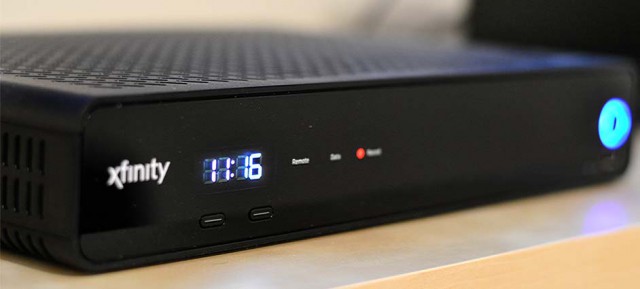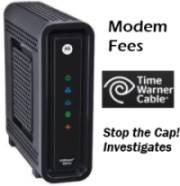 While planning to quietly drop Time Warner Cable’s budget-minded, unrestricted $14.99 Everyday Low Price Internet package after it acquires the company, Charter Communications is celebrating a “new and improved” low-income Internet offer that will likely discriminate against current customers while protecting company profits.
While planning to quietly drop Time Warner Cable’s budget-minded, unrestricted $14.99 Everyday Low Price Internet package after it acquires the company, Charter Communications is celebrating a “new and improved” low-income Internet offer that will likely discriminate against current customers while protecting company profits.
Charter Communications announced this month it would start offering qualified low-income families and seniors 30/4Mbps broadband service for $14.99 a month within six months of closing its acquisition deal with Bright House Networks and Time Warner Cable. Charter claims its newest program will offer the highest broadband speed of any similar low-income discount Internet plan, and will include discounts for cable television and phone service as well.
“Recognizing the central role broadband plays in our daily lives and the economic challenges faced by many Americans today, we look forward to launching this offering that will provide more consumers a superior broadband service,” said Tom Rutledge, president and CEO of Charter Communications. “Our industry-leading low-cost broadband service is just one of the many benefits these transactions will bring to our customers. We look forward to providing this superior broadband service to underserved families and seniors throughout Charter’s footprint.”

Time Warner Cable offers $14.99 to anyone without paperwork. Charter isn’t.
But Charter’s discount Internet offer will replace Time Warner’s current $14.99 discount Internet program, available to any customer without pre-conditions or term contracts. Charter’s proposal to regulators states the company plans to replace multiple tiers of broadband service offered by Time Warner and Bright House with just two options — 60 and 100Mbps tiers that will eventually cost customers at least $60 a month — four times the cost of Time Warner’s budget-minded alternative.
Unlike Time Warner’s Everyday Low Price Internet, customers will have to qualify for the discounted program, which will discriminate against current customers, individuals and families without school age children, and senior citizens that do not receive additional assistance from the government.
 Among the most onerous restrictions, Charter plans to protects itself from revenue cannibalization by prohibiting existing broadband customers from paying less by signing up for Charter’s new discounted plan. Customers will have to voluntarily drop Bright House/Charter/Time Warner Cable Internet service for at least 60 days before they can apply for Charter’s new low-cost option.
Among the most onerous restrictions, Charter plans to protects itself from revenue cannibalization by prohibiting existing broadband customers from paying less by signing up for Charter’s new discounted plan. Customers will have to voluntarily drop Bright House/Charter/Time Warner Cable Internet service for at least 60 days before they can apply for Charter’s new low-cost option.
Other requirements limit participation only to families with students participating in the National School Lunch Program or seniors age 65 or older who also receive Supplemental Security Income program benefits. In all cases, participating customers must pay off all current and any past charges still owed to Bright House, Charter, and/or Time Warner Cable before they can enroll.
Charter included in a press release announcing the program a list of organizations it claims prove “widespread support for Charter’s low-cost broadband service.” Charter did not mention most of the groups quoted have a long history supporting the telecom industry, mostly after cashing generous contribution checks from the cable and phone companies involved:
National Urban League: A notorious friend of big cable and phone companies, the Urban League is a regular supporter of telecom mergers and opposes Net Neutrality. The Urban League has compiled a poor record among civil rights groups that routinely favors corporate contributors over the need of their constituencies. Its president, Marc Morial, has attracted the attention of the Center for Public Integrity, which published an exposé about the group and its leadership in 2014.

Sharpton
National Action Network, an organization founded and run by Reverend Al Sharpton: Sharpton’s group no longer discloses its corporate donor list, but large telecom companies often have the support of NAN on everything from mergers and acquisitions to blocking consumer protection regulation. An entertainment company executive in California called Sharpton corporate America’s “least expensive negro” for his willingness to advocate for big cable and phone companies in return for relatively small donations to his organization. National Action Network Inc. is on Charity Navigator’s Watchlist.
League of United Latin American Citizens: Time Warner Cable is an existing Corporate Alliance member of LULAC, a group that routinely supports large telecom company mergers and acquisitions and often advocates on their behalf while accepting corporate contributions.
Connected Nation: A group Public Knowledge says is sponsored by telephone and cable companies and represents their interests.
Digital Divide Partners LLC: Two guys from the Bronx running a website with spelling and grammar issues. The site doesn’t seem to have been updated since May 2015 and only then to post a generic thank you letter from the Manhattan Borough President Gale Brewer.
NOBEL Women: In addition to the company’s sponsorship of group functions, Bright House’s corporate vice president for government and industry affairs – Marva Johnson, was a featured participant at the group’s 2014 annual conference.
Rainbow PUSH Coalition: Jesse Jackson’s group has come under fire for favoring the corporate agendas of its donor base. Rainbow/PUSH has a long record supporting corporate telecom mergers, including SBC and Ameritech back in 1999, AT&T and Tele-Communications, Inc. in 1999, AT&T and BellSouth back in 2006, Comcast and NBCUniversal in 2011, among many, many others. The coalition, supposedly representing the interests of average Americans, has also filed comments with regulators opposing a-la-carte cable TV pricing (pay only for the channels you want) and railing against Net Neutrality.
 In a sign federal regulators are taking the behemoth merger of Charter Communications, Time Warner Cable, and Bright House Networks seriously, the FCC today announced it was temporarily stopping the clock on the merger review required to approve or reject it.
In a sign federal regulators are taking the behemoth merger of Charter Communications, Time Warner Cable, and Bright House Networks seriously, the FCC today announced it was temporarily stopping the clock on the merger review required to approve or reject it.

 Subscribe
Subscribe While planning to quietly drop Time Warner Cable’s budget-minded, unrestricted $14.99 Everyday Low Price Internet package after it acquires the company, Charter Communications is celebrating a “new and improved” low-income Internet offer that will likely discriminate against current customers while protecting company profits.
While planning to quietly drop Time Warner Cable’s budget-minded, unrestricted $14.99 Everyday Low Price Internet package after it acquires the company, Charter Communications is celebrating a “new and improved” low-income Internet offer that will likely discriminate against current customers while protecting company profits.
 Among the most onerous restrictions, Charter plans to protects itself from revenue cannibalization by prohibiting existing broadband customers from paying less by signing up for Charter’s new discounted plan. Customers will have to voluntarily drop Bright House/Charter/Time Warner Cable Internet service for at least 60 days before they can apply for Charter’s new low-cost option.
Among the most onerous restrictions, Charter plans to protects itself from revenue cannibalization by prohibiting existing broadband customers from paying less by signing up for Charter’s new discounted plan. Customers will have to voluntarily drop Bright House/Charter/Time Warner Cable Internet service for at least 60 days before they can apply for Charter’s new low-cost option.


 Time Warner Cable customers who purchased their own cable modems to avoid the company’s $8 monthly rental fee will effectively be forced to indirectly pay those fees once again if Charter Communications wins approval to buy the cable operator.
Time Warner Cable customers who purchased their own cable modems to avoid the company’s $8 monthly rental fee will effectively be forced to indirectly pay those fees once again if Charter Communications wins approval to buy the cable operator. Zoom wants Charter to be required to offer consumers that own their own equipment a tangible monthly discount for broadband service as a condition of any merger approval.
Zoom wants Charter to be required to offer consumers that own their own equipment a tangible monthly discount for broadband service as a condition of any merger approval.